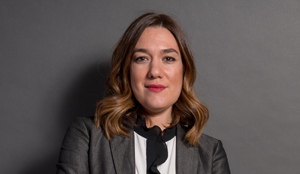Year in Review: notable 2020 patent cases in Spain
Bird & Bird’s IP lawyers summarise some of the most notable patent decisions in key jurisdictions in Europe for 2020. This report focuses on Spain.
First marketing authorisation for SPC – Ferring International (Superior Court of Madrid)
Ferring International appealed the decision to the High Court of Justice of Madrid against the decision of the Spanish Patent and Trademark Office (SPTO) denying the grant of an SPC for the drug VIRIREC. The SPTO considered that the SPC could not be granted because the marketing authorisation designated in the certificate was not the first marketing authorisation for the product. Specifically, there was a previous drug, CAVERJET, which also had alprostadil as the active ingredient. Both drugs were intended for the treatment of erectile dysfunction, the only difference being that VIRIREC was applied as a cream and CAVERJET as an injectable solution.
The appellant argued that the differences in the route of administration of the two drugs was sufficient to grant a new SPC in light of the doctrine established by the CJEU in Neurim (Case C-130/11), which defined the concept of a “new therapeutic application” of a patented product.
The Madrid court concluded, however, that the CJEU was not referring to merely a different route of administration of an already known product (e.g. in a cream as opposed to by syringe), but to a new therapeutic application of the known and already marketed active ingredient (e.g. for treatment of a new indication). The court confirmed that article 3(c) of the SPC Regulation does not permit the same basic patent to be used to obtain several SPCs that totally or partially refer to the same product.
Expert evidence on inventive step – Valeo v Alkar (Barcelona Court of Appeal)
The Court of Appeal’s decision emphasises the need for careful preparation of expert opinions filed in patent cases.
Valeo claimed infringement of two of its illumination device patents against Alkar. In response, Alkar counterclaimed for revocation of the patents in the infringement action. At first instance, the court dismissed the infringement action, partially upholding the counterclaim.
The court analysed inventive step using the “problem-solution” approach. The court found the closest prior art selected by the defendants to be unsuitable as it was quite different from the problem solved by the patent.
The case turned on the two countervailing expert opinions. The court considered the defendant’s expert (in support of revocation) as unreliable, as she only assessed the invention underlying the patent itself. On infringement, the claimant’s expert (in support of infringement) was criticised for failing to undertake any direct inspection of any specimen. The defendant’s expert did inspect specimens, but her approach was found to be sufficient to allow for an objective assessment of the patents. The court upheld Valeo’s infringement claim.
Public availability of prior art – Laboratorios Normon v Research Corporation Technologis/UCB Biopharma/Harris (Barcelona Mercantile Court)
The dispute related to lacosamide, a drug largely used in the treatment of epilepsy. The claimant sought revocation of the patent and SPC held by the defendants.
The revocation claim in respect of EP 0888289 was based on lack of novelty and inventive step. The alleged lack of novelty arose from prior art in the form of a doctoral thesis which was, allegedly, publicly accessible. The court held that the concept of public accessibility, in particular as regards academic papers, was to be assessed under EPO decisions and guidelines. According to the guidance, whether a document is considered publicly accessible or not must be based on a probability judgement of all available evidence.
In this case, the doctoral thesis was published only confidentially within academic circles. The thesis was sent to academic libraries and other knowledge centres, but not included in the public catalogue. Evidence was given which showed that the author of the thesis tacitly and expressly stated that no disclosure of its content outside the “circle of confidentiality” was to be made prior to the issuance of the patent. The patent was considered novel. The court analysed inventive step using the problem-solution approach, rejecting the claimant’s arguments as being based on an ex post facto (retroactive) analysis.
The opinions expressed are those of the author(s) and do not necessarily reflect the views of the firm, any other of its practitioners, its clients, or any of its or their respective affiliates. This article is for general information purposes only and is not intended to be and should not be taken as legal advice. Please contact the author(s) if you have any questions about this article.
You can view the other articles in this series for the United Kingdom, Germany, Italy, The Netherlands and France.


